What you need to know about ID cards
Whether you back the looming ID system or not, here's what you need to know about government plans to create an identity database.


The most recent report has shown that the charge for the ten year development and day-to-day running of the system will be 4.785 billion, while the cost for foreign nationals will be 326 million.
The card itself will initially cost applications 30, but the Home Office has stated that cost could rise from 2012 the year the programme really kicks off for most citizens.
At the moment, foreign nationals will also be expected to cover the cost of travelling to one of just seven enrolment centres. At the moment, just Croydon is open for business, but is set to be followed by Cardiff, Glasgow, Northern Ireland, Sheffield, Solihull and Liverpool. By the time the 2012 rollout kicks off, the government is hoping citizens won't have to make such journeys, as they'll be able to go to their local post office or photo shop, for example, to have their biometric data taken.
The system has been compared to the passport photo market you need a photo to apply, but you don't need to go to a government office to have it taken, as many shops are authorised to take them. Jacqui Smith said such a system could work for collecting biometrics such as fingerprints, and said such a 'biometric enrolment market' could be worth 200 million by 2012.
"We want these services to be provided by the market, giving people a competitive choice that ensures convenience and cost-effectiveness," she said earlier this month.What that means for ID card applicants is that the 30-and-likely-rising cost does not include the cost of a photograph or your fingerprints.
As noted previously, the card must also be replaced every ten years, at your own cost. While cards do not need to be replaced for each and every address change, they must be replaced following name changes such as after marriage or gender changes. A planned information economy
Cost and privacy aren't the biggest complaints, according to NO2ID's Guy Herbert. "The most fundamental one is that it profoundly alters the relationship between citizen and the state," he told IT PRO. "The Home Office's new model is to put itself as man in the middle for every interaction you have."
Get the ITPro daily newsletter
Sign up today and you will receive a free copy of our Future Focus 2025 report - the leading guidance on AI, cybersecurity and other IT challenges as per 700+ senior executives
"Nobody is allowed to trust anyone else, but are required to trust the Home Office absolutely."
Indeed, in order to access the registry to check the validity of an ID card, both private and public sector organisations must be accredited to ensure they're using the information in a responsible way and have the technology to keep the data safe.
The Home Office, obviously, can't accredit itself, so we're left in the position where we simply have to trust that the data is being held in a safe way or hope the information commissioner's new powers to spot-check can be used on the Home Office itself and the new national identity commissioner gets even stronger powers.
Herbert said this is driven by the government's believe that if it can only collect enough information, it can become more efficient. "Big government's a bit like a planned economy," he suggested. "If only you can get enough information, everything can be made better."
Freelance journalist Nicole Kobie first started writing for ITPro in 2007, with bylines in New Scientist, Wired, PC Pro and many more.
Nicole the author of a book about the history of technology, The Long History of the Future.
-
 Datadog Database Monitoring extends to SQL Server and Azure database platforms
Datadog Database Monitoring extends to SQL Server and Azure database platformsNews The tool offers increased visibility into query-level metrics and detailed explanation plans
By Praharsha Anand
-
 Oracle and Microsoft announce Oracle Database Service for Azure
Oracle and Microsoft announce Oracle Database Service for AzureNews Azure users can now easily provision, access, and monitor enterprise-grade Oracle Database services in Oracle Cloud Infrastructure
By Daniel Todd
-
 Elastic expands cloud collaboration with AWS
Elastic expands cloud collaboration with AWSNews Partnership aims to ease migration to Elastic Cloud on AWS, as well as simplify onboarding and drive go-to-market initiatives
By Daniel Todd
-
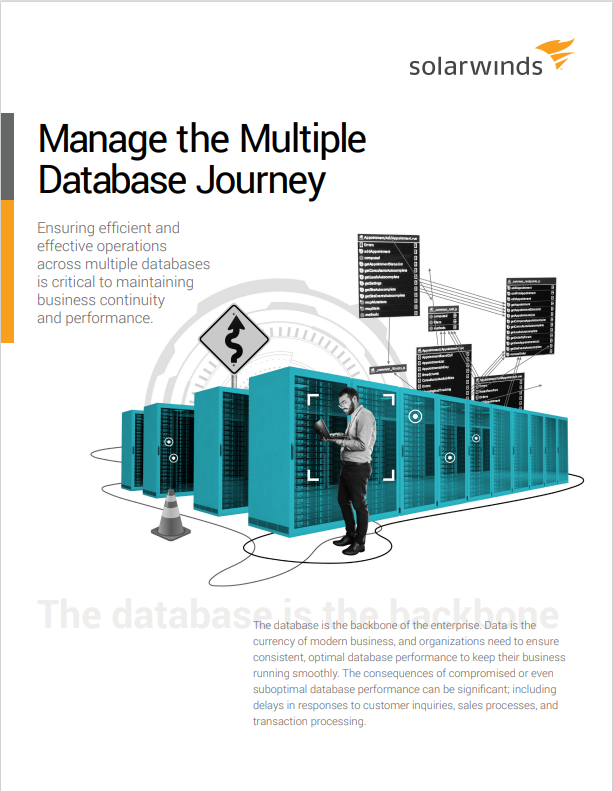 Manage the multiple database journey
Manage the multiple database journeyWhitepaper Ensuring efficient and effective operations across multiple databases
By ITPro
-
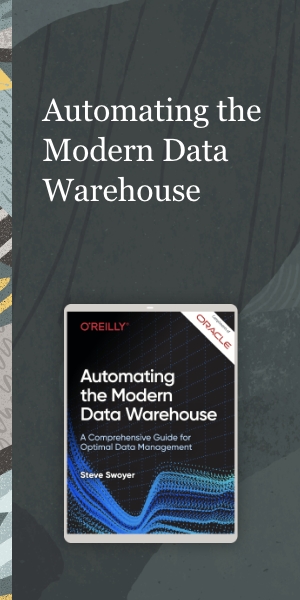 Automating the modern data warehouse
Automating the modern data warehouseWhitepaper Freedom from constraints on your data
By ITPro
-
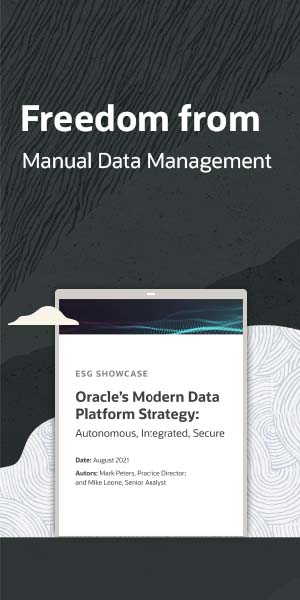 Freedom from manual data management
Freedom from manual data managementWhitepaper Build a data-driven future with Oracle
By ITPro
-
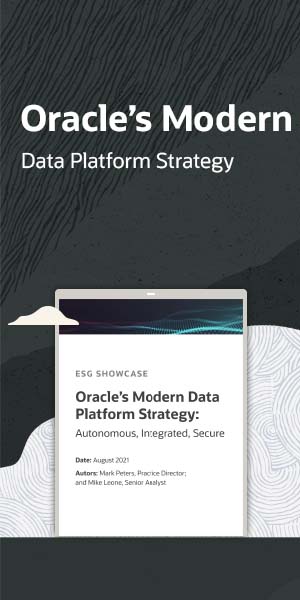 Oracle’s modern data platform strategy
Oracle’s modern data platform strategyWhitepaper Freedom from manual data management
By ITPro
-
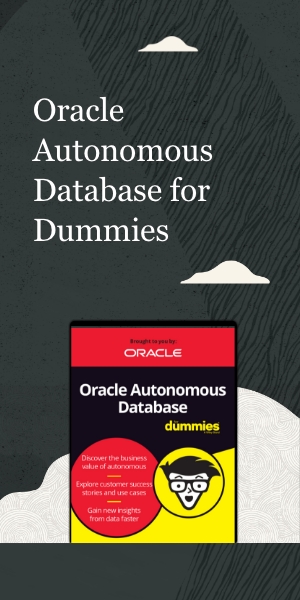 Oracle autonomous database for dummies
Oracle autonomous database for dummiesWhitepaper Freedom from mundane, manual database management
By ITPro

